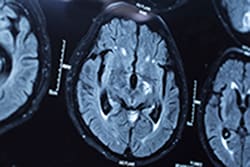Information for Health Care Providers
Health care providers play an essential role in recognizing, treating, and managing epilepsy. This page shares links and resources that health care providers can use to learn about the latest epilepsy treatment guidelines, seizure classifications, programs that address mental health problems, and how to help pediatric patients transition to adult care.
2017 Revised Classification of Seizures
The International League Against Epilepsy (ILAE) has revised its classification of seizures to make diagnosing and classifying seizures more accurate and easier.
International League Against Epilepsy: A Practical Clinical Definition of Epilepsy

This 2014 report provides the ILAE’s recent guidelines for diagnosing epilepsy.
American Epilepsy Society Clinical Resources
This professional organization promotes research, education, and collaboration for professionals dedicated to the prevention, treatment, and cure of epilepsy.
Guidelines for Epilepsy Centers
The National Association of Epilepsy Centers (NAEC) is a nonprofit association that develops standards of care, accreditation for more than 230 member epilepsy centers across the United States, and provides informational resources to centers and individuals.
ClinicalTrials.gov
Find epilepsy clinical trials that may be beneficial to your patients.
Shared Decision Making Toolkit
The Agency for Health care Research and Quality (AHRQ) SHARE Approach is a five-step process for shared decision making that includes exploring and comparing the benefits, harms, and risks of each option through meaningful dialogue about what matters most to the patient.
People with epilepsy can benefit from learning skills and techniques that help them manage their disorder, its treatment, and its effects so that they can live full and satisfying lives. Physician support of patient self-management is a key component of effective chronic illness care. A patient is much more likely to participate in a self-management program with a recommendation from a health care professional.
CDC’s Managing Epilepsy Well Checklist describes self-management strategies in detail and can be printed for patients to use at home.
Managing Epilepsy Well Network Programs
The Managing Epilepsy Well (MEW) Network is a group of academic Prevention Research Centers that conduct studies related to epilepsy self-management. Read how the MEW Network is improving health and quality of life for people with epilepsy through their research programs, and find resources that you can use in your practice.
Some MEW Network programs are implemented by local Epilepsy Foundation affiliates. Learn more about these partnerships on the Epilepsy Foundation website.
The American Epilepsy Society also has clinical practice tools and information on self-management for programs for health care providers.
Depression is common among people with epilepsy and can further reduce quality of life. Health providers should screen their patients for depression and offer referrals to mental health professionals when appropriate.1
The MEW Network has developed three programs, PEARLS, Project UPLIFT, and TIME, that reduce depression in people with epilepsy. Health providers can become trained to deliver these programs or learn more about programs available locally.
PEARLS (Program to Encourage Active, Rewarding Lives) is an evidence-based self-management program designed to reduce depression and improve quality of life in adults with epilepsy. A mental health counselor provides 6 to 8 skill-building sessions that take place in a person with epilepsy’s home. The program uses a team-based approach, involving doctors, nurses, and social workers to help the individual overcome depression.
The PEARLS Program is designed to be part of community-based programs that deliver care and provide resources to clients. The PEARLS team conducts several on-site training sessions throughout the year in Seattle, Washington. Learn more about the PEARLS training.
Project UPLIFT (Using Practice and Learning to Increase Favorable Thoughts) is a phone- and web-based program designed to prevent or reduce depression in people with epilepsy. UPLIFT is based on mindfulness and cognitive therapy, two techniques proven to help prevent and manage symptoms of depression. The program includes eight group sessions with exercises at home between sessions. UPLIFT is led by two people, one with mental health training and the other with epilepsy, and supervised by a licensed psychologist.
Free training and CEUs are offered to mental health professionals who want to implement UPLIFT in their community.
TIME (Targeted Self-Management for Epilepsy and Mental Illness) is a group treatment program designed to improve epilepsy and mental health for adults with epilepsy and mental illnesses, such as depression, anxiety, bipolar disorder, post-traumatic stress disorder, or schizophrenia. A trained nurse educator and a trained peer educator instruct in-person group sessions over a 10-12 week time period. Individuals have 2 telephone maintenance sessions with the nurse educator about 2 weeks apart after the group sessions are done.
The transition from pediatric to adult epilepsy care is a multi-year journey for patients and families. Use these resources to help young adults with epilepsy transition smoothly to adult health care systems.

Help young adults with epilepsy transition to adult care.
Transition of Care
The Child Neurology Foundation has a variety of tools to assist with the transition process, such as downloadable self-assessments, plans of care, medical summaries, and transfer letter samples. Also, learn 8 common principles to assist with the transition of care in this helpful interactive graphic [PDF-5.82 MB].
Transition Tools: Adolescents
Clinicians can use the tools developed by the American Epilepsy Society to develop and implement a process for successful transition of an adolescent epilepsy patients into adult epilepsy care. One is for adolescents without a significant developmental disability and the other is for adolescents with a significant developmental disability.
Transitioning to Adult Care
The American Academy of Pediatrics National Coordinating Center for Epilepsy has tools for health care providers who care for children with epilepsy. Learn how drug management, diet management, social and emotional challenges, and medical homes play a role in the transition to adult care.
These free online courses for health care providers offer free continuing education credits upon full completion.

Diagnosis and Management of Neurocysticercosis
Neurocysticercosis is a leading preventable cause of epilepsy worldwide. This free online course educates clinicians about neurocysticercosis. Lessons include epidemiology, presentation, diagnosis, evaluation techniques, and management of patients. Continuing education credits are available at Neurocysticercosis: Diagnosis and Management of Patients Living in the United States.
Marijuana Use in Adolescent Populations
This training improves the knowledge of health care providers about marijuana perceptions and usage among the adolescent populations. It is offered through the Pediatric Environmental Health Specialty Units.
Department of Veteran Affairs Trainings
Introduction to Epilepsy
This training addresses the key elements of taking the history of a person with a seizure-like event and how to identify non-pharmacologic approaches to manage seizures.
Medication and Epilepsy
This training helps physicians, nurses, and allied health professionals understand the common side effects of antiepileptic drugs (AEDs) and describes how side effects depend on the drug mechanism of AEDs.
Advanced Management of Epilepsy
This training helps physicians, nurses, and allied health professionals describe nonepileptic seizures (NES) and how to appropriately refer patients with NES for treatment.
Recognizing Imitators of Epilepsy
This training provides an introduction to the clinical approach to differential diagnosis of seizures. It also includes a more in depth discussion on psychogenic non-epileptic seizures, syncope, movement disorders that may imitate seizures, and other common imitators.
Mental Health and Wellness in Epilepsy
This training helps health care providers identify the risk of suicide and objectively examine quality of life challenges for patients with epilepsy.